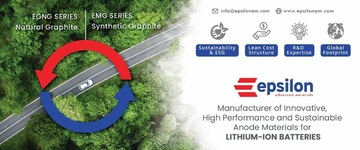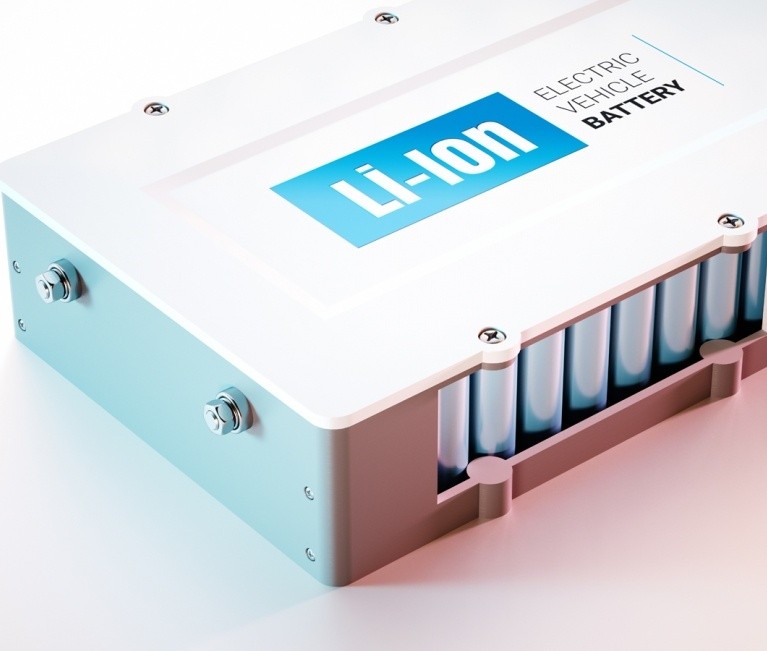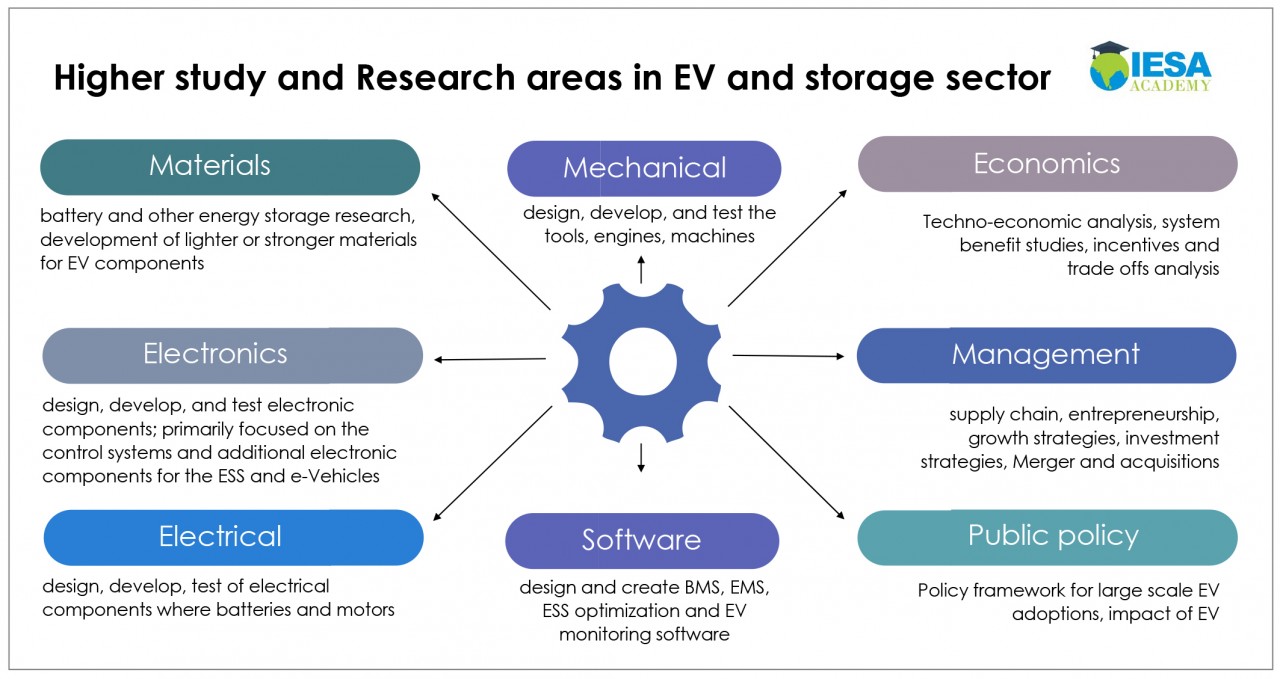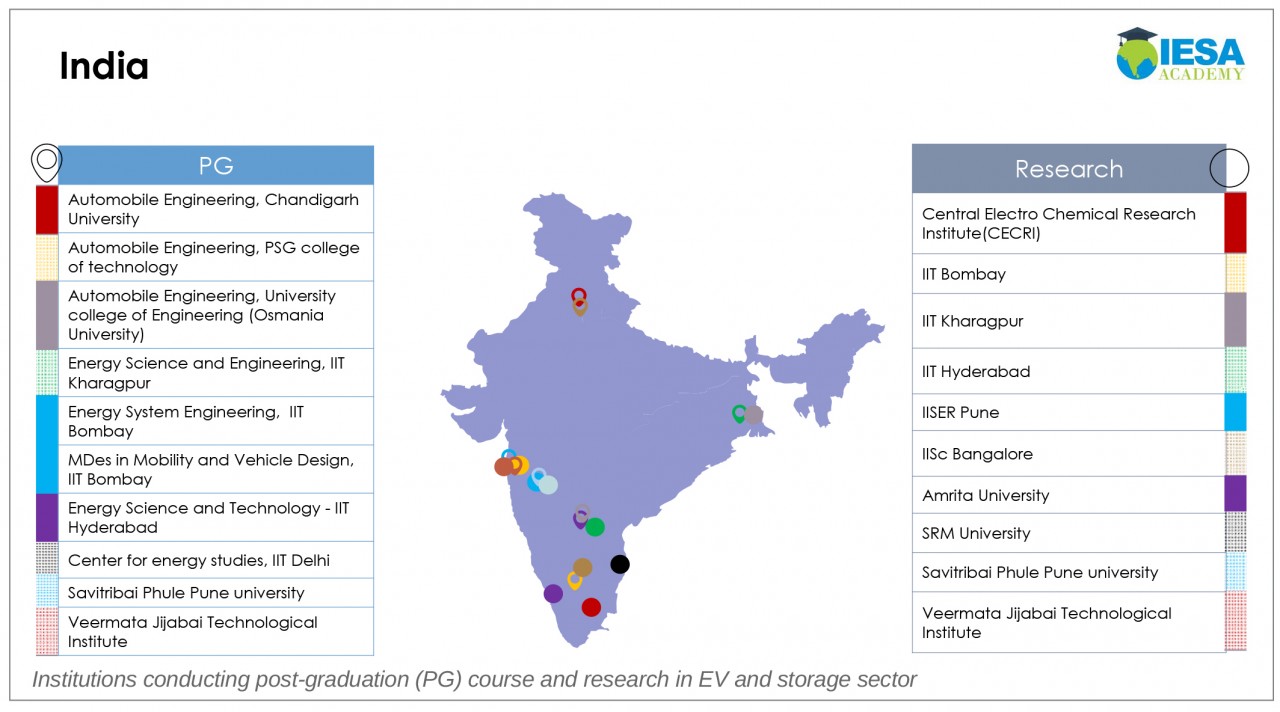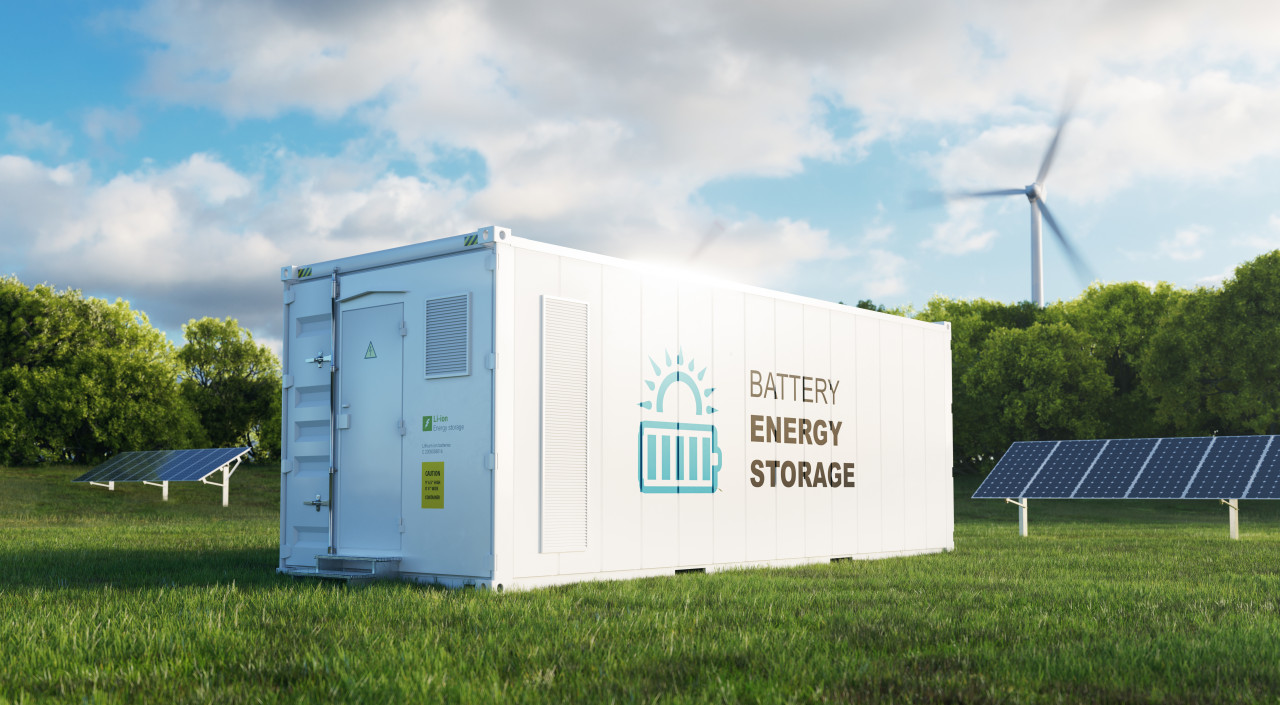State of R&D in battery energy storage sector in India
There's a need for Indian R&D centers to work collaboratively with the industry to address challenges associated with current battery technologies as they continue developing new and advanced battery technologies.
To meet the ambitious targets set by the government of installing of 175 GW of renewable energy capacity by the year 2022, and 30 percent of the total vehicles on road being EVs by 2030 – energy storage technologies will play an important role in enabling this transition. As the energy storage ecosystem develops it is going to be increasingly important to conduct state-of-the art research on various battery technologies.
Need for robust domestic R&D
There are a host of benefits associated with country-specific research on battery technologies.
(i) It increases the country's knowledge base, which helps in future improvements of battery technology as per the country's climatic conditions, uses patterns, availability of raw materials and future demand.
(ii)It helps develop skilled manpower in materials development. It further helps in designing, developing, and testing of electronics, electrical, and mechanical components; and designing of products such as battery management system (BMS), energy management system (EMS) and EV monitoring software.
Promoting R&D in battery technologies
There are number of existing and next-generation battery technologies which are suitable for application of EVs, stationary storage systems and portable electronics. Batteries like lithium-ion (Li-ion), lithium-sulfur (LiS), sodium-sulfur (NaS), solid-state batteries, advanced lead-acid, vanadium redox flow battery, zinc-bromine, zinc-air are examples of the mature technologies. To promote fast growth in the energy storage domain, India is promoting various research activities focusing on batteries.
India has many academic institutions and national laboratories that have facilities that conduct battery-related research. Among them, Council of Scientific & Industrial Research (CSIR) and Central Electrochemical Research Institute (CECRI) are primarily dedicated to electrochemical research. In CECRI, researchers are working on various battery technologies – For example, li-ion, Na-ion, solid-state battery, flow battery, lead-acid battery etc. Apart from CECRI, there are several other research groups in the Indian Institute of Technology (IIT Delhi, IIT Kanpur, IIT Guwahati, IIT Roorkee, etc.), Indian Institute of Science (IISc Bangalore), National Institute of Technology, Centre for Materials for Electronics Technology (C-MET Pune) and many other institutions are working on battery technologies.
These institutions also work in collaborative ways to solve some of the research problems under various government programs. For instance, Materials on Energy Storage (MES) program supports R&D activities on battery and storage device. Another program is Materials for Energy Conservation and Storage Platform (MECSP) that supports research and development for entire spectrum of energy conservation and storage technologies.
Currently, several Indian institutions are also working closely with foreign universities on battery related research. Researchers from IIT Madras and Karlsruhe Institute of Technology (KIT), Germany, are working on advanced LIB cathode materials to have long lasting and better performance batteries. Monash University, Deakin University, Australia and the IIT-Bombay funded through an Australia India Strategic Research Fund (AISRF) project are developing affordable high-performance batteries. Under the Department of Science and Technology (DST), Government of India and the Ministry of Science and Technology of State of Israel, ajoint research activity has been undertaken where researchers at the CSIR-CECRI and Tel Aviv University, Israel, will jointly study low-cost, stable lithium-sulfur batteries. IIT Bombay and Bar-llan University are also working together to examine tuning of solid electrolytes for efficient solid-state Li-ion batteries.
Among various battery technologies, Li-ion is considered as forefront battery technology owing to its superior electrochemical properties. Research activities on Li-ion battery are focused on modeling and simulation of materials
properties, synthesis of new electrodes and electrolyte materials, characterization of materials with analytical instruments and finally testing the new materials in lab-scale prototypes. Lab-scale prototypes are normally coin cells or Swagelok type cells. These cells are convenient and fast to assemble and require very little active material. As a result, they are ideal for testing many variations with minimum resources.
Research on battery recycling
Research on recycling aspects of Li-ion battery is important, as with growing popularity of EVs the number of used Li-ion batteries is bound to grow. Battery recycling is a critical technology for India given the domestic shortage of certain scarce materials for lithium batteries. So far in the country, the unorganized sectors have been playing a significant role in the collection and recycling of Li-ion batteries. A proper framework would help streamline the process of battery collection and segregation. It will also prevent recycling in the unorganized sector where care is not given to proper safety considerations.
As use of LIBs increases, the demand of various raw materials will also rise. LIBs are not toxic like other batteries, but recycled materials from battery can have positive contribution from an environmental and economic perspective as the country is mostly dependent on some of the key battery materials like lithium, cobalt, and nickel. Potentially, all the materials used in an LIB, namely Li, Co, Ni, Mn, and Al can be recovered and re-used for either battery or other applications. However, currently, most of the recycling efforts by the industries are focused on recovery of cobalt, this is due to its high cost, and concerns regarding its availability.
Recovery and refining each of the materials and making them battery-grade is a challenge. With regards to technological challenges associated with Li-ion battery recycling, scientists from Council of Scientific and Industrial Research (CSIR) labs National Metallurgical Laboratory (NML) and Institute of Minerals and Materials Technology (IMMT) are actively working on Li-ion battery recycling.
R&D for domestic manufacturing
Indigenization of energy storage manufacturing will help meet the country's future demand and ensure energy independence. To set-up indigenous manufacturing facilities of different storage technologies, it is important to identify key raw materials, estimate its requirement for GWh scale manufacturing, its availability in India and evaluate the practicality of manufacturing the different components locally. To become truly 'Atmanirbhar' in battery storage technology, and set-up indigenous manufacturing facilities, country should focus more on R&D, specifically on:
- Development of country-specific advance battery system
- Research focused on BMS, to monitor battery performance accurately
- Use of data mining and AI to predict battery performance and life in shorter time frame
- Research focused on equipment development required for giga scale facility
- Research on battery pack and safety features
- Development of cost-effective recycling methods with maximum material recovery, etc.
Indian R&D centers need to focus more on collaborative research with the industries to solve problems associated with current battery technologies. It is also important to work and develop next-generation technologies to become truly
independent.

